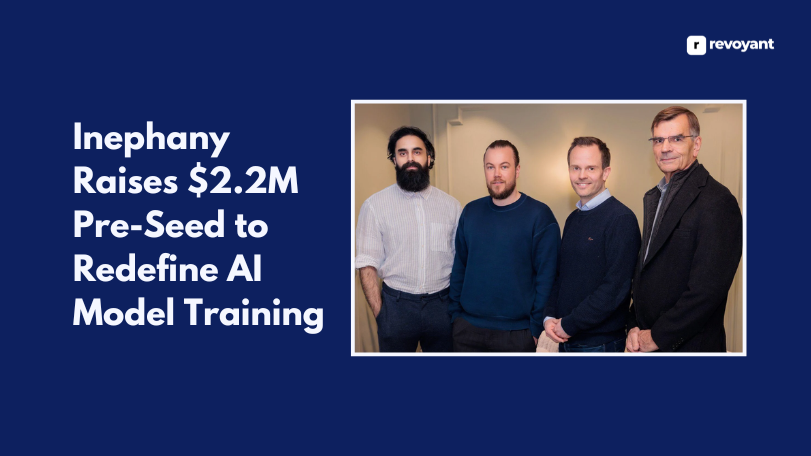Finding someone’s online presence can be tricky, especially with so much information scattered across the internet. FaceCheck.ID makes it easier by using AI facial recognition to search for social media profiles and news articles through pictures.
This blog will explore how this tool works, its benefits, and the risks tied to privacy concerns and misuse. Keep reading—it’s an eye-opener!
Key Features of FaceCheck. ID
FaceCheck.ID offers advanced AI technology for facial recognition. It provides tools for identity verification, online safety, and reverse image searches.
- AI Facial Recognition: Uses cutting-edge artificial intelligence to match faces with high accuracy.
- Massive Database: Contains over 793 million faces from social media, blogs, news articles, and videos.
- Risk Alerts: Identifies scam reports or links to criminal records in search results.
- Confidence Scores: Ranks matches on a 0 to 100 scale for reliability.
- Exportable Results: Allows users to download search results in PDF or Excel formats.
- Continuous Monitoring: Sends alerts about new matches or updates using this feature.
- Multiplatform Access: Compatible with iPhone, Android, and desktop devices for ease of use.
- API Integration: Offers custom integration options for developers needing biometric authentication tools.
- Low Resolution Matching: Supports the search of low-resolution images like thumbnails (JPEG or PNG).
The next section will discuss how FaceCheck.ID works in detail.
How FaceCheck. ID Works
Users upload clear images to start the facial recognition process. The system then scans and compares these images against a vast database of social media profiles, low-resolution thumbnails, news articles, and online data.
Using AI technology, it identifies potential matches and provides detailed results. These results include confidence scores ranging from 50% to 100%. A score above 90% indicates a certain match, while lower ranges signal less confidence.
On average, FaceCheck.ID delivers results in just 18.1 seconds as of March 21, 2025. Matches come with flagged risks or warnings if suspicious content is detected. For example, users trying to authenticate someone’s identity on dating apps can use this tool to verify credibility quickly.
SSL encryption keeps uploads secure during searches—protecting user privacy throughout the entire process.
“Match certainty levels help users make informed decisions by clearly showing how confident the system is about each result.”
Pros and Cons of FaceCheck. ID
FaceCheck.ID brings advanced AI-driven facial recognition to everyday users. It has practical applications but comes with certain limitations. Below is a detailed comparison of its benefits and drawbacks:
| Pros | Cons |
|---|---|
| Effectively verifies identities, reducing risks of scams and fraud. | False positives may occur, flagging innocent individuals. |
| Helps reconnect with long-lost friends or relatives through photo searches. | Relies on publicly available data, limiting comprehensive results. |
| Offers API integration for seamless integration with other systems. | Lacks a database of new or uncommon images, impacting accuracy. |
| Provides alerts when new updates or matches are found in the database. | Raises ethical concerns regarding its potential for misuse. |
| Quick and efficient in identifying images from available sources. | Minimal customer support options, relying mainly on FAQs for assistance. |
FaceCheck.ID serves as a helpful tool for specific use cases. Its pros are compelling, but its cons highlight areas needing caution.
Pricing and Subscription Plans
The tool uses a credit-based pricing structure, allowing users to choose plans that suit their needs. Each search costs 3 credits, with multiple subscription tiers available. Users can pay using cryptocurrencies like Bitcoin or Litecoin for added privacy, or opt for platforms like PayPal, Venmo, and CashApp.
| Plan Name | Credits | Cost | Cost Per Credit |
|---|---|---|---|
| JUST PEEK | 36 | $6 | $0.17 |
| ROOKIE SLEUTH | 150 | $19 | $0.13 |
| PRIVATE EYE | 400 | $47 | $0.12 |
| DEEP INVESTIGATOR | 2,000 | $197 | $0.10 |
| THE PROFESSIONAL | 10,000 | $597 | $0.06 |
The bigger the plan, the lower the credit cost. For example, the “JUST PEEK” plan costs $0.17 per credit, while “THE PROFESSIONAL” plan brings the price down to $0.06 per credit. This structure benefits frequent users. Moreover, payments made via Coinbase or Bitpay offer seamless crypto transactions, ensuring anonymity.
Misuse of FaceCheck. ID
FaceCheck.ID has sparked debates due to its potential for misuse. Some users exploit its capabilities in ways that raise serious ethical questions.
Privacy Violations
Using facial recognition tools without consent can intrude on privacy. Many users are unaware their images from social media profiles, like Facebook or Instagram accounts, might be searched.
FaceCheck.ID collects public data but may still fall short of complying with strict regulations like GDPR or CCPA in protecting user privacy. Low-resolution thumbnails and profile pictures shared online are often targeted for unauthorized surveillance efforts.
These activities raise concerns over how biometric technology is used—emphasizing the risk of mass surveillance or misuse by third parties.
Unauthorized access to personal information also puts individuals at risk of harm. Continuous search features allow tracking someone without their approval, creating dangers for digital identity theft or stalking cases.
Government entities have expressed concern about potential Fourth Amendment violations involving such AI-powered face search engines. Without strong safeguards, this kind of tool can become a serious threat to data protection rights and broader online safety issues… leading directly into ethical challenges tied to misuse by bad actors or organizations exploiting the system’s capabilities.
Ethical Concerns
Face recognition tools like FaceCheck.ID spark ethical debates. Data privacy issues arise as facial recognition technology scans publicly available images, possibly violating personal boundaries.
Although the platform bans searches for minors and allows free image removal requests, misuse still happens. Concerns grow over its potential role in false accusations or misidentifications during criminal investigations, which can harm innocent people.
Some fear its use for stalking or sifting through social media profiles without consent. These actions challenge rights to online safety and fair use of public content. Strict guidelines on access control and continuous search monitoring could help reduce misuse but don’t guarantee full protection against unethical behavior.
Alternatives offer similar features with stronger data protection policies—keeping them worth exploring next.
Alternative Facial Recognition Tools
Facial recognition tools are growing fast. Many alternatives to FaceCheck.ID exist with unique features.
- PimEyes
PimEyes is a paid tool offering facial recognition search. It scans millions of online images to find matches, even from low-resolution thumbnails. Known for accuracy, it helps locate social media profiles and identify individuals from photos. - TinEye
TinEye offers reverse image search but without facial identification. Its focus is broader, comparing pictures instead of faces. It’s useful for finding image origins or duplicates across the web. - SearchFace
SearchFace specializes in finding matches on Russian social networks like VKontakte (VK). Although less popular globally, it’s effective in its target region. - Google Reverse Image Search
Google provides a free and reliable reverse image search tool. While it doesn’t include facial recognition technology, it locates visually similar images and related content online. - Bing Visual Search
Bing’s reverse image tool works similarly to Google’s but offers integration with Microsoft ecosystem services like Office and Edge browser. - Clearview AI
Clearview AI scans billions of public images, including those on social media platforms, for identity verification uses by law enforcement agencies worldwide. - Social Catfish
Social Catfish aids in detecting fake accounts and verifying identities using reverse image search alongside databases for emails, phone numbers, and more. - AWS Rekognition
Amazon Web Services’ (AWS) Rekognition supports businesses through API integration with their apps or websites for real-time facial identification tasks. - Trueface AI Solutions
Trueface focuses on security enhancements using its advanced ai technology that helps authenticate users in access control systems or smartphone apps effectively without cookies tracking user data unnecessarily!
Tips for Responsible Use of FaceCheck. ID
Using FaceCheck.ID comes with perks, but it also demands care. Following these tips can help ensure responsible usage while respecting privacy.
- Always use high-quality, forward-facing photos for better results. Avoid blurry images, low-resolution thumbnails, or group photos.
- Verify matches through additional evidence such as social media profiles or public records. Never rely solely on the tool’s results.
- Keep search accuracy in mind—matches with scores above 83 are highly reliable but still need confirmation from other sources.
- Searching for minors is strictly prohibited and violates terms of use. Follow data protection laws and prioritize online safety.
- Use this tool only for ethical purposes like identity verification or protecting yourself from scams on sites like Social Catfish.
- Avoid searching sensitive content or distributing findings irresponsibly. This includes cases involving child rapists or pedophiles unless authorized by law.
- Consider using alternative tools like Google reverse image search when your needs are basic and don’t require API integration or continuous search features.
- Safeguard your own privacy by reading FaceCheck.ID’s data privacy policies carefully before uploading any personal files to http systems.
- Use FaceCheck.ID responsibly across platforms like iOS, YouTube, or Reels without violating others’ rights to data protection and fair use practices.
Conclusion
FaceCheck.ID is a powerful tool with unique features. It helps users find social media profiles, verify identities, and stay alert to risks. Yet, misuse raises ethical and privacy concerns.
Use it wisely—respect data protection laws and others’ rights. The balance between innovation and responsibility matters most.
FAQs
1. What is FaceCheck ID, and how does it work?
FaceCheck ID is an AI-powered face search tool that uses facial recognition to perform reverse image searches. It helps users find social media profiles or verify someone’s identity by scanning images, even low-resolution thumbnails.
2. How does FaceCheck ID ensure data privacy and online safety?
FaceCheck ID claims to prioritize data protection by following strict policies for handling user information. However, like any AI technology, misuse can occur if safeguards are not followed properly.
3. Can businesses use FaceCheck ID for identity verification?
Yes, businesses can use FaceCheck ID for authenticating identities through API integration or continuous search features designed to improve relevance in results.
4. What are some concerns about the misuse of this tool?
Some people worry about its potential misuse in tracking individuals without consent or invading personal privacy—similar issues seen with tools like Social Catfish or Google Reverse Image Search.
5. Are there costs associated with using FaceCheck ID?
Yes, the platform offers credit packages based on usage needs, allowing flexibility while accessing its trove of features and usability options.




